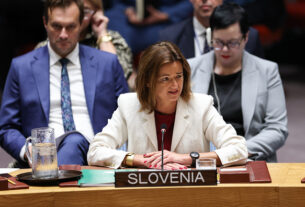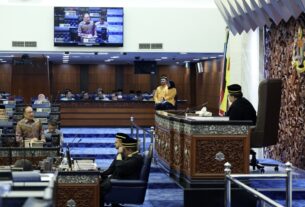SEOUL, Sept 19 – In a significant move highlighting the delicate balance between diplomacy and economic ambition, South Korea’s Foreign Minister Cho Hyun announced that the government will first work to resolve US visa issues affecting Korean workers before pushing forward with a monumental US$350 billion (RM1.47 trillion) investment package in the United States.
The announcement follows a troubling immigration raid in Georgia, where hundreds of South Korean workers employed at a Hyundai Motor battery facility were detained by US authorities. While most have since returned to South Korea, the incident ignited concern among South Korean firms operating in the US and reignited urgent calls for a dedicated visa category to support highly skilled Korean professionals—particularly those vital to establishing new manufacturing sites and training American workers.
Cho clarified that although these visa complications are pressing, they are not a precondition for South Korea’s planned investments in strategic sectors in the US, including electric vehicles, semiconductors, and renewable energy. However, he emphasized that Seoul is committed to ensuring its citizens are treated fairly and can contribute safely to international projects without fear of legal disruptions.
During the press conference, Minister Cho also shed light on diplomatic engagements beyond the US. He expressed optimism about Chinese President Xi Jinping’s expected attendance at the Asia-Pacific Economic Cooperation (APEC) summit, which South Korea will host later in October.
Having just returned from Beijing after high-level talks with Chinese Foreign Minister Wang Yi, Cho conveyed South Korea’s willingness to reopen cultural discussions—particularly regarding Korean entertainment content, which has faced import restrictions in China for nearly a decade.
The ban was a retaliatory measure over South Korea’s deployment of the US-backed Terminal High Altitude Area Defense (THAAD) missile system, which Beijing argues threatens its national security due to the system’s radar capabilities. These tensions have cooled cultural exchanges between the two nations, particularly affecting the globally adored K-pop and Korean drama industries.
At the heart of this story is not just a political strategy or a financial plan, but people.
South Korea’s insistence on protecting its workforce before advancing its massive investment shows a human-centered approach to diplomacy. Every investment, every summit, and every policy ultimately affects the lives of workers, artists, and families. And in a rapidly changing global landscape, it’s refreshing to see a nation pause and prioritize its people before business.




